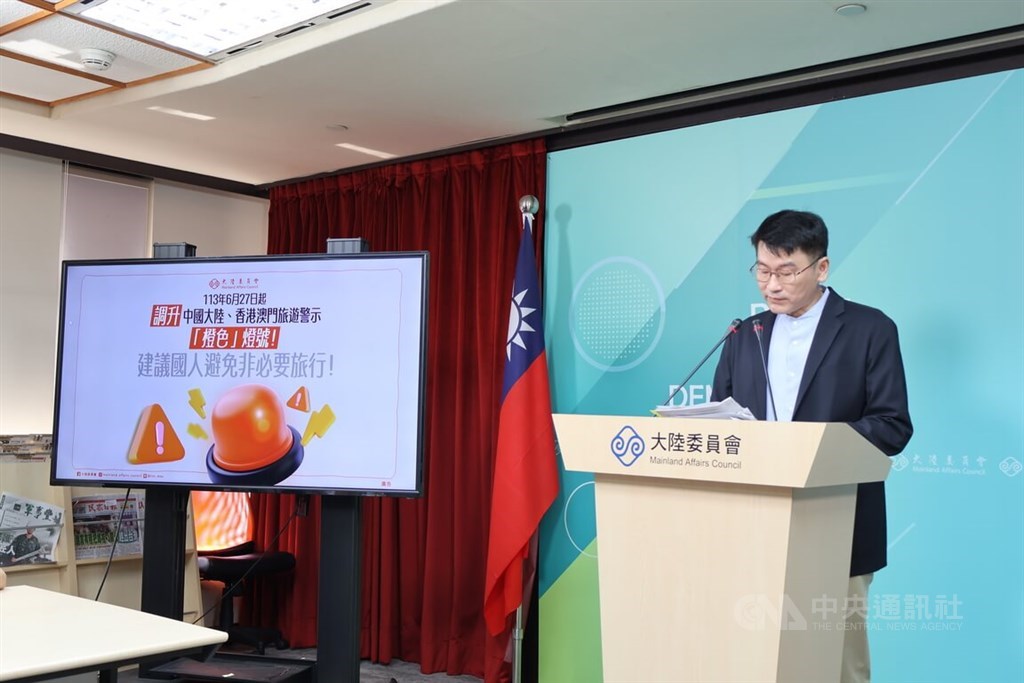Taipei, June 27 (CNA) Taiwan’s Mainland Affairs Council (MAC) said Thursday it would raise its travel alert for China, Hong Kong and Macau to the second-highest orange alert with immediate effect, advising Taiwanese citizens to avoid unnecessary travel to these regions due to increasing safety concerns.
The decision was made because of China, Hong Kong and Macau amending and enacting various national security laws in recent years, Liang Wen-chieh (梁文傑), deputy head and spokesperson of the MAC, told a news conference.
A set of newly issued guidelines specifically targeting advocates of Taiwan independence could seriously threaten the safety of Taiwanese citizens when travelling to these regions, Liang said.
The MAC is Taiwan’s top government agency handling cross-strait affairs.
Liang said there have been several cases of Taiwanese citizens being illegally detained, held, and interrogated in mainland China.
The Chinese authorities also issued a new set of legal guidelines — only applicable in mainland China — on June 21 targeting advocates of Taiwan independence, which took effect immediately.
The new guidelines allow courts in China to try “Taiwan independence separatists” in absentia, with “diehard” advocates of Taiwan independence convicted of inciting secession who also cause “grave harm to the state and the (Chinese) people” potentially being sentenced to death, according to China’s state-run Xinhua News Agency.
“Due to the introduction of the new guidelines related to the so-called ‘crime of secession’, we, as a government agency, have the duty to remind our citizens that there are indeed risks involved (when traveling to the regions),” Liang said.
The MAC turning a blind eye to this situation would be a dereliction of duty, he added.
Liang, however, reiterated that the travel alert is not a countermeasure against China, but a reminder for Taiwanese citizens to avoid unnecessary trips. He emphasized it is not a ban on people visiting the regions.
If trips are necessary, travelers should avoid mentioning sensitive topics and issues, taking photos of ports, airports, and military exercise locations, and carrying books related to politics, history, and religion, Liang reminded the public.
The Taiwanese government uses a four-tiered travel advisory regarding safety and security risks for travel in foreign countries and territories.
The highest level, red, asks Taiwanese nationals not to travel to a destination, followed by orange, which indicates unnecessary travel should be avoided. Yellow suggests travel should be reconsidered, while the lowest level, gray, signifies caution should be exercised.
During the pandemic, the travel alert for China was red. It was later lowered to yellow on October 13, 2022, due to the pandemic subsiding, Liang said.
The authority originally planned to lower the travel alert from yellow to gray In July 2023. However, China revising its Counterespionage Law on July 1, 2023 led to the government maintaining the yellow alert until Thursday’s announcement, Liang added.

